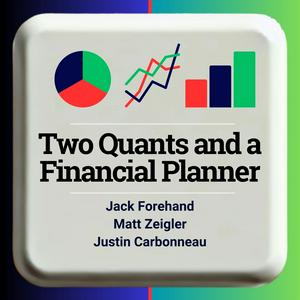75% of Investors Will Disagree with These Ideas: Evidence Says They are True
In this episode, we dive into the most controversial takesfrom our podcast guests. Inspired by a brilliant question from Meb Faber(thanks, Meb!), we’ve compiled insights from top financial minds to explorebeliefs that challenge conventional wisdom. From debunking dividend hype toreimagining the role of options and AI in investing, this episode is packedwith thought-provoking perspectives. Main Topics Covered: - Meb Faber challenges the obsession with dividends - Mike Green introduces Goodhart’s Law to investing,suggesting that once a metric is tracked, its effectiveness diminishes. - Jim Paulsen downplays the importance of monetary policyand valuation, emphasizing Main Street sentiment over Wall Street metrics. - Ben Carlson defends retail investors, claiming they’rebetter behaved than ever thanks to modern tools and advice. - Dan Rasmussen disputes the predictability of growth,asserting past financials reveal little about a company’s future. - Lindsay Bell and Shannon Saccocia advocate for learningthrough failure and a forward-looking, futurist mindset in investing. - Cem Karsan flips the script, arguing options are the trueunderlying asset, not derivatives. - Andrew Beer champions simplicity over complexity, citingthe success of straightforward hedge fund bets. - Jason Buck questions the existence of long-term alpha,favoring a diversified, rebalanced approach. - Ian Cassel challenges the low-turnover mantra, suggestinghigh turnover can work. - Scott McBride dismisses the need for catalysts in valueinvesting, focusing on valuation and governance. - Larry Swedroe critiques low-volatility strategies, arguingthey only shine when paired with value. - Kris Sidial highlights the importance of trading psyche, aview often dismissed by quant-driven peers. - Kai Wu predicts AI will enhance, not replace, financialjobs by handling rote tasks and freeing humans for creativity. - Doug Clinton forecasts a multi-trillion-dollar AI-poweredasset management industry within a decade. - Meb Faber (again!) flips the narrative on internationalinvesting, showing it’s a winner for 49 out of 50 countries.
